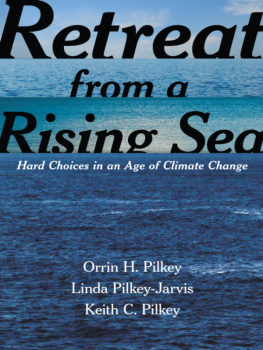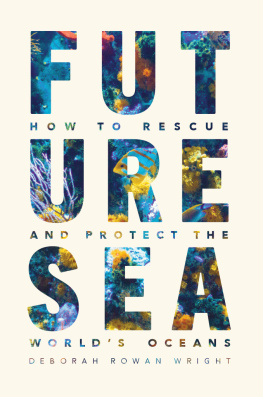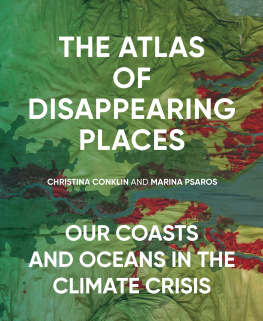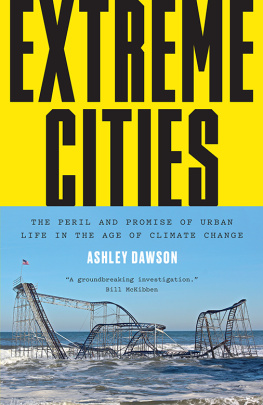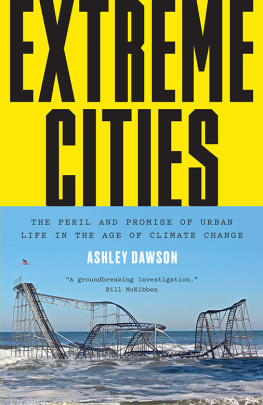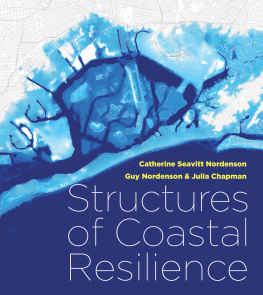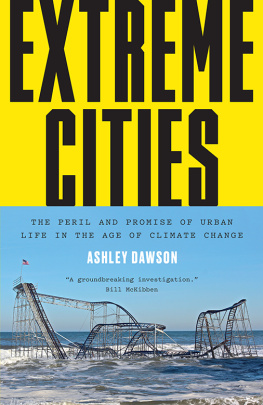Table of Contents
Retreat from a Rising Sea
Retreat from a Rising Sea
Hard Decisions in an Age of Climate Change
Orrin H. Pilkey
Linda Pilkey-Jarvis
Keith C. Pilkey
| Columbia University Press New York |  |
Columbia University Press wishes to express its appreciation for assistance given by the Santa Aguila Foundation toward the cost of publishing this book.
Columbia University Press
Publishers Since 1893
New York Chichester, West Sussex
cup.columbia.edu
Copyright 2016 Columbia University Press
All rights reserved
E-ISBN 978-0-231-54180-0
Whatcha Gonna Do, 2014 Bla Fleck and Abigail Washburn. Used by permission.
Library of Congress Cataloging-in-Publication Data
Names: Pilkey, Orrin H., 1934 author. | Pilkey-Jarvis, Linda, author. | Pilkey, Keith C., 1965 author.
Title: Retreat from a rising sea : hard choices in an age of climate change / Orrin H. Pilkey, Linda Pilkey-Jarvis, and Keith C. Pilkey.
Description: New York : Columbia University Press, [2016] | Includes bibliographical references and index.
Identifiers: LCCN 2015034502| ISBN 9780231168441 (cloth : alk. paper) | ISBN 9780231541800 (e-book)
Subjects: LCSH: Coast changes. | Sea level. | Shore protection. | Global warming. | Coastal zone management.
Classification: LCC TC330 .P55 2016 | DDC 333.917dc23
LC record available at http://lccn.loc.gov/2015034502
A Columbia University Press E-book.
CUP would be pleased to hear about your reading experience with this e-book at .
COVER IMAGES: Justin Leibow (leibow.com), Xeromatic (lifeofpix.com), Oscar Keys (unsplash.com)
COVER DESIGN: Randall Bruder, Good Done Daily
References to Web sites (URLs) were accurate at the time of writing. Neither the authors nor Columbia University Press is responsible for URLs that may have expired or changed since the manuscript was prepared.
Dedicated to Sharlene G. Pilkey
Whatcha gonna do, whatcha gonna do
Whatcha gonna do, whatcha gonna do
Whatcha gonna do, whatcha gonna do
When the land goes under the water?
Cant go east, Cant go west
Whatcha gonna do, whatcha gonna do
Black tides coming itll do the rest
When the land goes under the water?
Cant go north, cant go south
Whatcha gonna do, whatcha gonna do
Cant go swimming to a big whales mouth
When the land goes under the water?
The land is broke, the skies are too
Whatcha gonna do, whatcha gonna do
Too little warning when it comes for you
When the land goes under the water?
Whatcha gonna do, whatcha gonna do
Whatcha gonna do, whatcha gonna do
Whatcha gonna do, whatcha gonna do
When the land goes under the water?
Whatcha gonna do, whatcha gonna do
Whatcha gonna do, whatcha gonna do
Whatcha gonna do, whatcha gonna do
When the land goes under the water?
BLA FLECK AND ABIGAIL WASHBURN, WHATCHA GONNA DO
Contents
BY THE SANTA AGUILA FOUNDATION
For the past two centuries, two trends have been steady and clear around the United States. Sea level has been rising, and more people have been moving closer to the coast, stated NASA scientists. The steadiness and ineluctability of these two trends have been observed and documented worldwide as well by scientists and international organizations. Such migration of people to coastal regions is common in both developed and developing nations, and according to an IPCC report, utilization of the coast increased dramatically during the twentieth century, a trend that seems certain to continue through the twenty-first century
Corroborating statistics from the United Nations indicate that half the worlds population lives within 40 miles of the sea, and three-quarters of all large cities are located on the coast. Furthermore, most of the worlds megacities, with more than 2.5 million inhabitants, are in the coastal zone.
The attractiveness of the coast, leading to the increasing rate of seaside settlements, can be explained by the economic benefits that accrue from access to ocean navigation, coastal fisheries, and tourism and recreation, and has resulted in the disproportionately rapid expansion. Indeed, unbridled urbanization on risk-prone areas along beloved, yet hazardous, shorelines is placing populations in danger zones. Under mounting evidential reports, scientists are warning us that, due to climate change and rising seas, storms are expected to be stronger and fiercer than ever before. Reminders of seaside-living risks abound too tragically in the news, worldwide.
The acceleration of human migration toward the shores is a contemporary phenomenon, but the knowledge and understanding of the potential risks pertaining to coastal living are not. Indeed, even at a time when human-induced greenhouse-gas emissions were not exponentially altering the climate, warming the oceans, and leading to rising seas, our ancestors knew how to better listen to and respect the many movements and warnings of the seas, thus settling farther inland. For instance, along Japans coast, hundreds of so-called tsunami stones, some more than six centuries old, were put in place to warn people not to build homes below a certain point. Over the world, moon and tides, winds, rains and hurricanes were symbiotically and naturally guiding humans settlement choices.
Modern humankind appears to be the only species on earth whose propensity is to migrate its habitat counter-intuitively, ruled solely by will, preference, greed, and, most dangerously, a sense of technological and engineering invulnerability against natures changes.
With our childrens future in mind, we must reconnect with our innate memory of the risks. We must be humble and accept scientifically corroborated facts.
We must be reasonable and become malleable to natures evolution.
We must be wise and build farther inland at higher elevations. We must be courageous and accept the need to retreat from the shores.
Insanity has been defined as doing the same thing over and over and expecting different results. We must cease the insanity, as the seas are risingineluctably.
The Santa Aguila Foundation is proud to have helped make Retreat from a Rising Sea possible. The Foundation is a U.S. nonprofit organization dedicated to the preservation of coastlines around the world. It was created after the Foundations founders witnessed the destruction of the beautiful beaches of Morocco by sand mining. Since then, the Foundation has focused its energy on global coastal issues and education. Our education efforts include the management of the beach website coastalcare.org and the publication of four books authored by Orrin Pilkey: The Worlds Beaches: A Global Guide to the Science of the Shoreline, Global Climate Change: A Primer, The Last Beach, and Retreat from a Rising Sea: Hard Decisions in an Age of Climate Change. We also brought our support to the award-winning documentary film Sand Wars.
We hope that you will enjoy this book and take as much pride as we do in defending and protecting our coastal environment.
For further information, please visit www.coastalcare.org.

